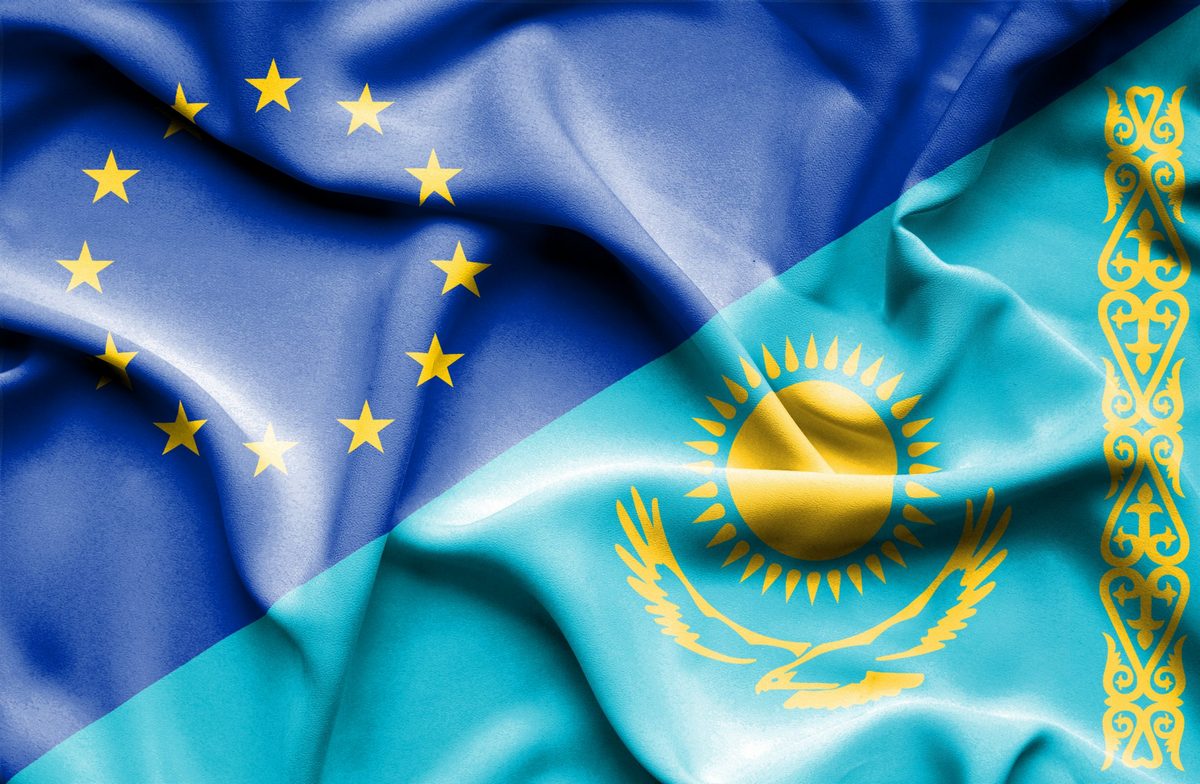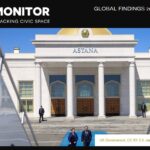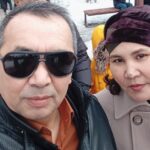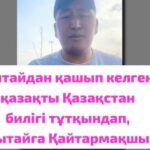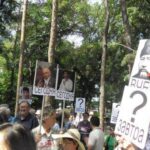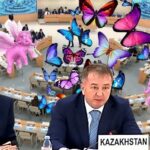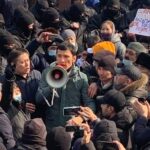The EU’s annual Human Rights Dialogue with Kazakhstan is scheduled to take place in Astana on 17 April 2024. This is an important opportunity for the EU to raise pressing human rights issue and request concrete measures to address such issues, within the framework of its value-based partnership with Kazakhstan.
International Partnership for Human Rights (IPHR) and Kazakhstan International Bureau for Human Rights and Rule of Law (KIBHR) have submitted a joint briefing paper for the dialogue, covering key issues and cases of concern regarding the protection of fundamental freedoms in Kazakhstan, which we urge the EU to raise as a matter of priority during the dialogue.
The joint briefing paper highlights the human rights fallout after the ‘’Bloody January’’ 2022 events, when authorities forcefully suppressed mass protests and unrest, and the widespread lack of accountability for human rights violations perpetrated in that context. The number of officials prosecuted and convicted for torture and other violations related to the January events remains low in relation to the scope of abuses reported. In addition, fair trial concerns have marred proceedings in those cases against officials which have made it to court.
The paper also documents how the political modernisation drive initiated by the president after the January 2022 events has been undermined by ongoing persecution of critics and opponents of the government, as well as systematic and widespread violations of the freedoms of association, peaceful assembly, and expression.
Political opposition groups continue to face obstruction in Kazakhstan and no such group has been able to obtain registration. For example, since spring 2022, the initiative group behind the Alga Kazakhstan! party has had its application for registration returned more than 20 times due to alleged problems with the list of supporters provided.
Local authorities routinely deny permission to hold peaceful assemblies, and detain and penalise participants in non-sanctioned protests before, during and after the protests. Activists gathering without any intention of protesting, for example, to show support for fellow activists during court proceedings have also been fined and locked up.
The publication of a registry of foreign-funded entities in autumn 2023 was a clear attempt to stigmatise and discredit those featured on it, including well-known human rights organisations and defenders. The initiative sparked fears that further measures targeting foreign-funded groups might follow.
Kazakhstan’s few independent media outlets and contributors continue to operate at risk, with an increasing number of cyberattacks being reported in recent months, correspondents of the local service of Radio Free Europe/Radio Liberty being denied accreditation, and other journalists being detained and prosecuted.
Both media representatives and international experts have criticised a draft media law under consideration in parliament for introducing provisions that fall short or international standards and risk resulting in arbitrary restrictions on the operations of media. These concerns were reinforced by recent amendments to the draft law which, amongst others, would allow the government to deny accreditation to foreign media outlets due to alleged security concerns and to suspend their activities without a court decision. MPs from the ruling Amanat party have also proposed introducing provisions that would criminalise propaganda of so-called non-traditional sexual relations and allow for suspending the operations of media outlets found to engage in such propaganda. Their proposals came on the heels of a government move to block a website set up to inform young people about LGBT issues in February 2024.
Other legislation adopted in Kazakhstan in autumn 2023 granted authorities new powers to restrict free speech in the name of fighting disinformation by introducing administrative liability for spreading ‘’false’’ information, in addition to a pre-existing, broadly worded criminal code provision banning the dissemination of such information.
In a troubling pattern, the Kazakhstani authorities continue to initiate charges of ‘’extremism’’, ‘’rioting’’, ‘’spreading false information’’, ‘’inciting discord’’ and other offenses against civil society activists, opposition supporters, human rights defenders, journalists and bloggers in retaliation for their peaceful activities and criticism of those in power. For example, in November 2023, Alga Kazakhstan! leader Marat Zhylanbaev was sentenced to seven years in prison on ‘’extremism’’ charges for activities that have nothing to do with violent extremism, while blogger-activist Duman Mukhamedkarim is currently on trial on similar charges. Last year activists Aigerim Tleuzhan and Kalas Nurpeisov were sentenced to lengthy prison terms because of their alleged involvement in the seizure of Almaty airport during the January 2022 events despite the lack of credible evidence against them. Activist Timur Danebaev was given a three-year prison sentence on vague charges of ‘’inciting discord’’ after speaking out against Kazakhstani government policies and Russia’s military aggression against Ukraine.
The leader of the opposition Democratic Party, Zhanbolat Mamai received a probationary sentence but was de-facto banned from political campaigning when convicted on unfounded charges of organising riots during the January 2022 events. Many other activists have also been subjected to far-reaching restrictions on their civic activities as part of custodial and non-custodial sentences issued against them. A recent example is that of Nazim Tabyldieva, who was banned from using social media for five years after being found guilty of ‘’spreading false information’’ in Facebook posts critical of the authorities.
In another development of serious concern, at least three Karakalpak activists have been detained by Kazakhstani authorities since the beginning of this year. They face the risk of forcible return to Uzbekistan on trumped-up charges initiated because of their pro-democracy and rights engagement in relation to the situation in Uzbekistan’s autonomous Karakalpakstan republic. Several other Karakalpak activists, who have been released from detention but denied asylum in Kazakhstan, also remain at the risk of forcible return to Uzbekistan.
The joint IPHR-KIBHR briefing paper has been prepared as part of the two organisations’ ongoing cooperation on documenting developments affecting fundamental freedoms in Kazakhstan in the framework of the CIVICUS Monitor global initiative to track civic space.
The briefing paper can be downloaded below.
SOURCE:
https://iphronline.org/articles/key-issues-for-the-eus-human-rights-dialogue-with-kazakhstan/


